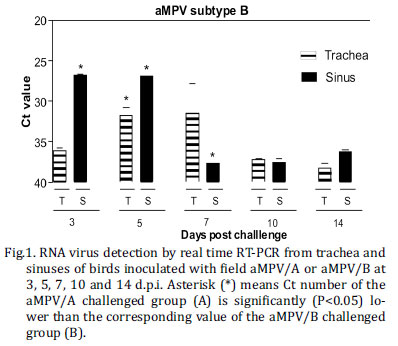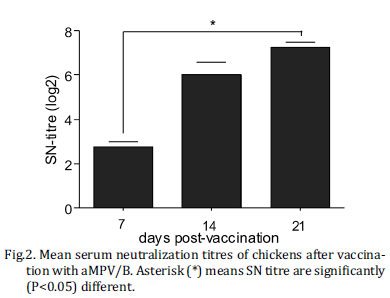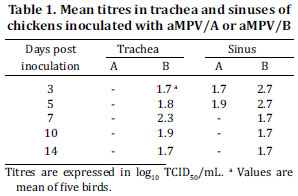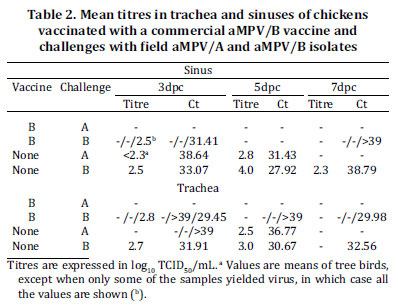Avian metapneumovirus (aMPV) is a respiratory pathogen associated with the swollen head syndrome (SHS) in chickens. In Brazil, live aMPV vaccines are currently used, but subtypes A and, mainly subtype B (aMPV/A and aMPV/B) are still circulating. This study was conducted to characterize two Brazilian aMPV isolates (A and B subtypes) of chicken origin. A challenge trial to explore the replication ability of the Brazilian subtypes A and B in chickens was performed. Subsequently, virological protection provided from an aMPV/B vaccine against the same isolates was analyzed. Upon challenge experiment, it was shown by virus isolation and real time PCR that aMPV/B could be detected longer and in higher amounts than aMPV/A. For the protection study, 18 one-day-old chicks were vaccinated and challenged at 21 days of age. Using virus isolation and real time PCR, no aMPV/A was detected in the vaccinated chickens, whereas one vaccinated chicken challenged with the aMPV/B isolate was positive. The results showed that aMPV/B vaccine provided a complete heterologous virological protection, although homologous protection was not complete in one chicken. Although only one aMPV/B positive chicken was detected after homologous vaccination, replication in vaccinated animals might allow the emergence of escape mutants.
Avian metapneumovirus; in vivo replication; vaccine protection

 Brazilian avian metapneumovirus subtypes A and B: experimental infection of broilers and evaluation of vaccine efficacy
Brazilian avian metapneumovirus subtypes A and B: experimental infection of broilers and evaluation of vaccine efficacy




